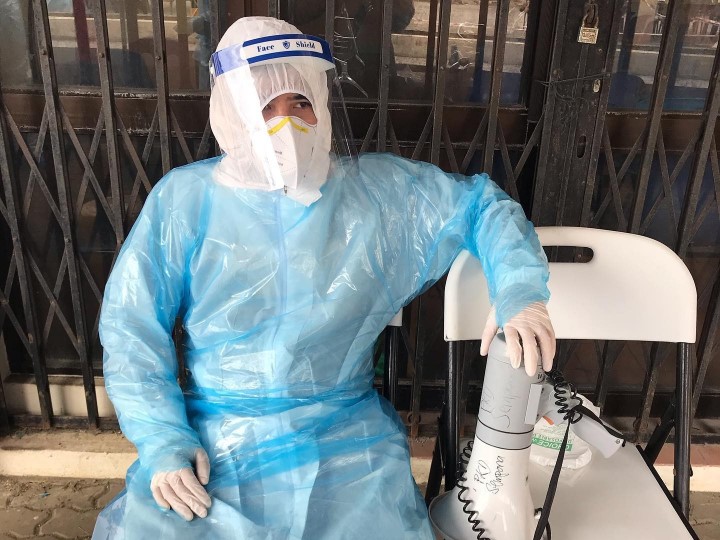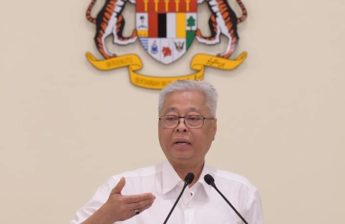KUALA LUMPUR, June 3 – Despite an independent task force’s reassurances that all views would be sought in its investigation into the work culture at public hospitals, several junior doctors believe that house officers should still be represented in the committee.
CodeBlue interviewed five doctors from Selangor, Perak and Johor — comprising two house officers and three medical officers — to get their thoughts on the Healthcare Work Culture Improvement Task Force (HWCITF) and workplace bullying in public health care facilities. The three medical officers completed their housemanship in Selangor, Sabah, and Penang between 2017 and 2021.
HWCITF’s name omits the word “bullying”, even though the task force was set up by Health Minister Khairy Jamaluddin after a slew of anecdotes about the bullying of junior doctors in Ministry of Health (MOH) hospitals, following the death of a house officer from Penang Hospital in April.
The doctors, who spoke to CodeBlue on condition of anonymity, said that HWCITF should have included house officers to truly understand the workplace challenges of trainee doctors at public hospitals.
A house officer from Universiti Kebangsaan Malaysia Medical Centre (PPUKM) in Selangor mentioned that excluding junior doctors completely from HWCITF is “absurd”.
“Who said that there won’t be any biases without us or anyone representing us?” the anonymous house officer from PPUKM told CodeBlue on May 20.
“Just like how in a court, there’s a jury and a judge, there should be a jury in this setting.”
The 25-year-old houseman claimed that shaming and degradation by senior doctors and specialists against trainee doctors are very common. Although she admitted that sometimes lashing out by senior doctors could be “reasonable”, there were instances where trainee doctors suffered bullying for no reason.
“Some doctors are just psychotic and unreasonable. There’s no justifiable cause as to why they act or behave the way they do.”
She also pointed out that the long working hours in hospitals are just beyond the capacity of junior doctors to function well. Working 16 hours a day continuously for six days a week was not just “exhausting”, but also unproductive as that allowed for more medical errors to occur.
“I myself have worked 114 hours in total in a week before. The result is nothing but mistakes on the patients, me burning out, exhaustion, depression, and just the feeling of wanting to resign.”
Public Service Department (JPA) regulations stipulate that a houseman’s total working hours should not exceed 72 hours per week and that total working hours should at least be 46 to 48 hours a week, including one hour rest for every eight hours of work.
Outsiders Won’t Understand Junior Doctors’ Hardships
A former house officer from Perak, who is currently working abroad, said that the nine-member HWCITF should have included a junior doctor to comprehend the entire picture of medical training in public health care facilities.
The 26-year-old doctor, who did her housemanship in Taiping Hospital from August to November 2021, was not convinced that the task force would be able to produce a balanced report without any biases.
Health Minister Khairy Jamaluddin said last May 17 that HWCITF did not include government doctors as MOH sought an independent investigation free of prejudices.
“In regards to this justification, it still doesn’t make sense to exclude the category of people who are involved because those outside of the health care scene or at a higher level would not understand the hardships that these junior doctors face,” the former Taiping Hospital house officer told CodeBlue on May 23.
“Most of the task force members are also not in the public health care system, and the ones who are in the task force are those in high-ranking positions. The hierarchy in the public Malaysian health care system is really evident and that contributes to the situation.”
Former Ministry of Science, Technology and Innovation secretary-general Prof Siti Hamisah Tapsir is leading the HWCITF. The other eight members include a former human resource chief executive at a bank, IMU Healthcare chief executive officer Dr Chong Su-Lin, a psychiatrist, and an organisational design expert, among others.
“Housemen or junior medical officers and medical doctor organisations should at least be a part of the task force as they are closer to the ground and would be able to better voice the current problems that our system has at the grassroot level,” the ex-Taiping Hospital house officer said.
The junior doctor also added that the housemanship landscape in public hospitals has evolved over years, and the needs of current juniors are way different now compared to those days.
“Some of them have gone through housemanship many years ago, but the current situation faced by house officers would be different now,” she said.
“Junior doctors would give clarity and a better understanding of what’s going on in the background. Victims of bullying may not stand up, and through these junior doctors, we will be able to hear what they wanted to say when they most needed to say it.”
The doctor, who only did her housemanship in Taiping Hospital for four months last year, said that the current contract system was one of the main reasons for her to resign and seek opportunities in a foreign land.
MOH introduced the contract doctor system in 2016 to reduce the glut of medical graduates waiting for housemanship from over 30 medical schools nationwide.
“My seniors who have gone through bullying have advised me to go overseas since I got an offer for it,” she told CodeBlue.
“A very big factor for me to go overseas was the opportunity to specialise in the future, especially in regards to the contract doctors’ situation. I know there’s some hope now, but it’ll take really long for real changes to happen.”
Medical Officers, Specialists Should Undergo Evaluation From Housemen
A medical officer who completed his housemanship told CodeBlue that HWCITF should have included medical groups and young doctors.
“They lack representation. There is no house officer or medical officer involved, which is bad, because the decisions made will affect these groups,” the anonymous doctor, who previously worked in University of Malaya Medical Centre (UMMC) in Selangor, told CodeBlue on May 24.
“I prefer to have one person on the panel who is either a house officer or a medical officer. MMA (Malaysian Medical Association) and Schomos can be the representative,” he added. Schomos is an MMA chapter that represents government doctors.
The 31-year-old doctor firmly maintained that a workplace bullying culture is prohibited in health care facilities, saying that being yelled at, threatened, or harassed for poor work performance is a form of bullying.
“No, bullying is not normalised in hospitals. However, we have to acknowledge that incidents do occur,” he said.
“Sometimes, it may be isolated incidents that happen in the heat of the moment. Other times, the alleged perpetrator may be a repeat offender. Hence, a thorough, fair, and just investigation has to be done, before conclusions can be made.”
The medical officer, who completed his housemanship in UMMC, said that providing various channels of communication would help junior doctors who have been affected by bullying problems in hospitals.
For instance, he said that providing resources to lodge complaints is key to preventing a bullying culture in hospitals, while protecting whistleblowers.
“Transparent answers in regards to how the cases are solved must be provided to victims to allow for closure. We need to protect our doctors. Also, MOs (medical officers) and specialists should be subjected to evaluation from HOs (house officers) too. People who constantly get bad reviews must be subjected to demerits.”
The doctor highlighted that an ideal housemanship training should include comprehensive communication between senior and junior doctors, where budding doctors should be treated fairly and be taught in proper ways.
“We can be reprimanded if we have done something wrong. However, it can be done in a nice and proper way.”
‘I Suffered Bullying In Penang Hospital’
A medical officer, who completed his housemanship in Penang Hospital last year, said that he experienced some of his worst “nightmares” in the MOH facility during his training.
The anonymous government doctor claimed that workplace bullying has been normalised in public hospitals.
“Once, an MO said beggars can’t be choosers, so just don’t complain,” the 28-year-old medical officer, who is now working in Johor, told CodeBlue on May 20.
“Speaking in Mandarin during rounds in hospitals also annoyed me besides getting yelled at in front of patients.”
The young government doctor attributed the contract system as a major factor for the current workplace bullying problem in public hospitals.
“Housemen rarely complain due to risk of losing the job (contract) or getting extended in a particular posting which is a black mark or shows you’re incompetent despite the reason of extension.”
He added that although there is a mental health support system available for doctors in public hospitals, doctors rarely use the facility.
“There is a stigma that ‘you’re weak’ if you seek assistance from psychiatrists or counsellors for mental stress and this will be in our record book of service, which will affect our career.”
Hear The Voices Of Young Doctors
A medical officer from Taiping Hospital in Perak said that young doctors should be heard and acknowledged in public health care settings.
He said that besides senior personnel, medical groups composed of young doctors or house officers should have been a part of HWCITF.
“An independent body can be regarded as impartial. However, the power still lies in the hands of MOH and MMC. I believe the government will pay attention to a strong organisation,” the anonymous medical officer told CodeBlue on May 24.
“In recent times, MMA via its Schomos wing has been genuine and vocal in issues concerning workplace bullying. Now it’s vital for medical doctors associations to join hands for a better environment at the workplace for junior doctors.”
It is to be noted that Khairy has indicated for MMA and Schomos to provide their views and opinions, so that HWCITF is able to produce a balanced report that’s fair to all parties.
The 31-year-old Taiping Hospital doctor, who completed his housemanship in 2017 at Queen Elizabeth Hospital in Kota Kinabalu, Sabah, added that medical students should be exposed to workplace stress and the cost of mistakes in health care facilities even before completing their studies.
“Once one has started housemanship, quitting shouldn’t be seen as something to be ashamed of. After all, different people have different mental strengths,” he said.
“Housemanship is aimed to train future medical officers who will be competent to treat patients in district hospitals which mostly run without specialists. Therefore, the guideline and knowledge assessment have to be standardised and a third party assessor can be considered.”
HWCITF is running a survey for health care professionals from the public sector from May 27 to June 7 on their work environment, including workplace harassment and bullying. However, the task force’s poll does not grant full anonymity as respondents are required to sign in with their Google account and provide their email address, the grade of their position in the civil service; the MOH programme, state, and type of facility that they’re working at; work tenure; age; gender; marital status; and ethnicity. Nonetheless, HWCITF has assured health care professionals that they can participate in its poll safely without fear of reprisal.








